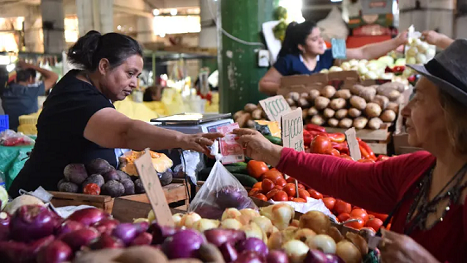 |
| The world economy remains uncertain and growth will slow over the next two years. (Source: Getty Images) |
World economy
WB warns global economy remains unstable
The New York Times quoted a report by the World Bank (WB) on June 6 warning that the global economy is still in an unstable state and growth in the next two years will slow down due to high interest rates reducing consumption and business investment, while threatening the stability of the financial system.
In its latest "Global Economic Prospects" report, the World Bank highlighted the difficulties facing global policymakers as they try to curb inflation by raising interest rates, while also dealing with the lingering impact of the pandemic and continued disruptions in supply chains due to the conflict in Ukraine.
The World Bank forecasts global economic growth will slow from 3.1% in 2022 to 2.1% this year, up from its January forecast of 1.7%, but growth will slow to 2.4% in 2024, down from its previous forecast of 2.7%.
The world economy is experiencing a “sharp and simultaneous slowdown” and 65% of countries will see lower growth this year than last, said Ayhan Kose, the World Bank’s deputy chief economist. Poor fiscal management in low-income countries that rely on debt has compounded the problem.
According to World Bank data, 14 of 28 low-income countries are in debt distress or at risk of debt distress. The bank estimates that the poorest countries will see their incomes fall by 6% in 2024 compared to 2019.
The World Bank also sees a slowdown in developed economies. In the US, growth is forecast at 1.1% this year and 0.8% in 2024.
China is a clear exception to this trend, with the Asian nation's economic growth forecast to be 5.6% this year and 4.6% next year.
Inflation is forecast to continue to slow this year, but the World Bank believes that by 2024, many countries will still have inflation levels higher than the targets set by central banks. (TTXVN)
US economy
* On June 8, the US Department of Commerce announced that the volume of goods imported from China fell to its lowest level since 2006. Notably, China's share of US imports continued to decline, down to 15.4% in April, the lowest level since October 2006.
The above figures may reflect the recent search by US businesses for alternatives to Chinese manufacturers, in an effort to diversify trading partners. (TTXVN)
Chinese economy
* The rally in global oil markets as China reopened has faded , replaced by a realization that reviving the economy after three years of pandemic-induced “tightening” will be a much tougher job than regulators and traders initially thought.
China is the world's largest buyer of crude oil. Although its crude oil imports have rebounded this year, actual demand remains weak, suggesting a relatively slow recovery.
After positive signs of economic growth in the first quarter of 2023, China's economy has stagnated in recent months, affecting the price outlook for oil. (Bloomberg)
* Xinhua News Agency on June 12 quoted an official from the National Development and Reform Commission as saying that China's non-fossil fuel energy sources have now exceeded 50% of the country's total installed power generation capacity .
Non-fossil power sources, such as wind and solar, account for 50.9% of China's total installed capacity, meaning the country has met the government's 2021 target of increasing renewable energy capacity to exceed fossil fuel capacity by 2025.
China has devoted significant resources to building renewable energy capacity in recent years, building large hydropower, wind and solar plants in the west with the goal of starting to reduce carbon emissions by 2030. (Reuters)
European economy
* The European Automobile Manufacturers Association (Acea) has just warned that the continent's auto industry could lose 4.3 billion euros (4.6 billion USD) and reduce production of nearly 500,000 electric vehicles unless the European Union (EU) agrees to delay the imposition of tariffs between the bloc and the UK.
Acea said China would benefit the most if the EU did not accept Britain's request to delay the new tax to 2027 instead of 2024. (TTXVN)
* European Commission (EC) President Ursula von der Leyen said on June 12 that the EU will double its investment in projects for sustainable development goals in the Latin American region .
Speaking to the press in Brasilia at the start of her Latin American tour, Ursula von der Leyen affirmed that the EU is the main investor in the region. The EU's expected investment of up to 10 billion euros (about 10.756 billion USD) for Latin America by 2027 is an international investment within the framework of the Global Gateway program. These resources will be supplemented by other investments from EU member states and private companies. (VNA)
* Russian President Vladimir Putin said on June 13 that he is considering the possibility of Russia withdrawing from the Black Sea Grain Initiative .
President Putin pointed out that in reality, most of Ukraine's grain is being sent to prosperous EU countries, not to African countries, which is contrary to the agreement. He stressed that in case of withdrawal from the Initiative, Russia will provide the poorest countries with free grain equivalent to the amount of grain supplied by Ukraine. (Reuters)
* German Finance Minister Christian Lindner has publicly rejected a request from technology giant Intel for higher subsidies for a 17 billion euro ($18 billion) chip factory it plans to build in Germany, saying the government could not afford it.
Intel announced in 2022 that it had chosen the central German city of Magduburg as the site for a new chip manufacturing complex. The German government had previously agreed to provide 6.8 billion euros in support. But due to higher-than-expected energy and construction costs, Intel is now proposing to increase the support package to around 10 billion euros. (Reuters)
* French Finance Minister Bruno Le Maire said people in his country will have to pay less for food from next month, after he received commitments from 75 food companies, including Unilever, to reduce prices on hundreds of products.
These companies, which together supply 80% of the food consumed by the French, could face financial penalties if they do not comply with the rules, according to Mr. Le Maire. (Reuters)
* The latest report from the United Nations Conference on Trade and Development (UNCTAD) shows that UK exports are at their weakest level compared to other G7 countries except Japan in the past decade. This figure is expected to increase pressure on the government to review the post- Brexit trade deal with the EU.
UNCTAD figures show that the value of UK goods and services exports stood at £813 billion in 2012 and between 2012 and 2021 increased by just 6%, to £862.6 billion, due to the impact of Britain leaving the EU.
Meanwhile, Canada, France, Germany, Italy and the US all saw double-digit increases in exports, of 10.2%, 16.1%, 22.7%, 15.9% and 13.8% respectively. Only Japan performed worse than the UK, with trade reaching £917.5bn in 2021, up 0.5% from 2012. (The Guardian)
Japanese and Korean economies
* According to the results of a survey on business performance forecasts of Japanese enterprises announced by the Ministry of Finance and the Cabinet Office of this country on June 13, the Business Sentiment Index (BSI) of Japanese enterprises across all industries in the second quarter was +2.7, the first time it reached a positive index after two negative quarters.
Thus, the majority of Japanese enterprises are optimistic about their business situation after a long period of being affected by the Covid-19 epidemic. (TTXVN)
 |
| South Korea's job growth slowed for a second consecutive month in May 2023, blamed on lingering economic uncertainties. (Source: Getty Images) |
* The Bank of Japan (BoJ) will meet next week. Although it confirmed that it will not give an inflation forecast after the meeting, the BoJ is likely to “signal” that inflation is exceeding initial predictions .
Japan's economy grew a stronger-than-expected 2.7% in the first quarter of 2023, driven by robust capital spending and solid domestic demand, according to a Reuters poll. However, core consumer inflation hit 3.4% in April amid continued price increases, raising doubts about the Bank of Japan's view that inflation will slowly return to below 2% in the second half of the current fiscal year, ending in March 2024. (Reuters)
* In May 2023, the number of new jobs in South Korea increased slowly for the second consecutive month , the cause is believed to stem from prolonged economic instability.
According to data from Statistics Korea, the number of employed people in May 2023 reached 28.83 million, an increase of about 351,000 people compared to a year ago.
South Korea's year-on-year job creation has slowed for nine consecutive months through February 2023. In March 2023, South Korea recorded an increase of 469,000 jobs compared to the same period in 2022, followed by 354,000 jobs in April 2023. (VNA)
ASEAN Economy and Emerging Economies
* Secretary-General of the Association of Southeast Asian Nations (ASEAN) Kao Kim Hourn has stressed the importance of building digital infrastructure to promote connectivity and economic growth of ASEAN member countries.
In an interview with Indonesia's official news agency Antara , Mr. Kao said that ASEAN needs to invest more in digital infrastructure.
The ASEAN Secretary-General said that the digital economy has been developed in each member country, especially in terms of online payments or transactions. Therefore, he said, regional cooperation is necessary to develop and take advantage of opportunities so that the digital economy can make an important contribution to economic growth in ASEAN. He also said that according to preliminary estimates, the ASEAN economy will increase by 1,000 billion USD if member countries continue to develop the digital economy. (VNA)
* Indonesia is trying to convince French companies to invest in the Nusantara National Capital Development (IKN) project in East Kalimantan province, especially in mixed-use projects.
On June 12, the IKN Nusantara Management Agency brought French Ambassador to Indonesia Fabien Penone and about 20 French businesses operating in many fields such as energy, smart city technology, environmentally friendly materials, etc. to visit the above mega project.
In the statement, the head of IKN Nusantara Management Authority - Mr. Bambang Susantong - said: "The French business delegation comes from all fields, not only as investors, but also to do business", referring to the mixed projects. (TTXVN)
* Malaysia's Minister of Science, Technology and Innovation Chang Lih Kang said the country is working to promote the establishment of infrastructure to enhance the ecosystem for electric vehicles . Malaysia's target is for the market share of electric vehicles to reach 15% by 2030 and 38% by 2040, but the country currently lacks a complete ecosystem to support the target. (TTXVN)
Source







![[Photo] Cat Ba - Green island paradise](/_next/image?url=https%3A%2F%2Fvphoto.vietnam.vn%2Fthumb%2F1200x675%2Fvietnam%2Fresource%2FIMAGE%2F2025%2F12%2F04%2F1764821844074_ndo_br_1-dcbthienduongxanh638-jpg.webp&w=3840&q=75)


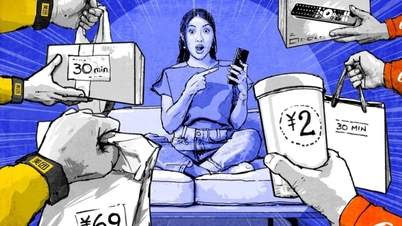





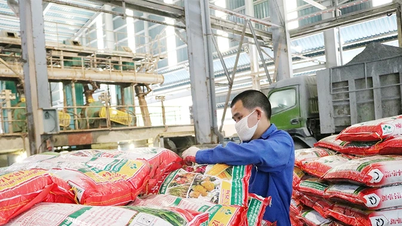

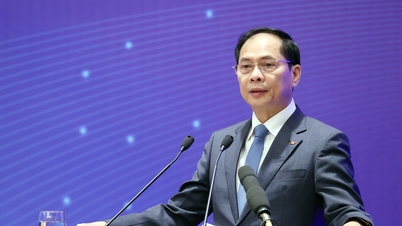



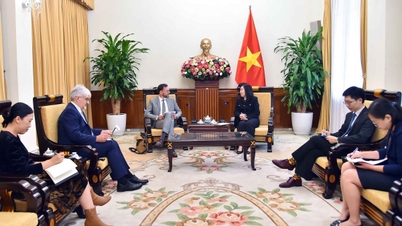
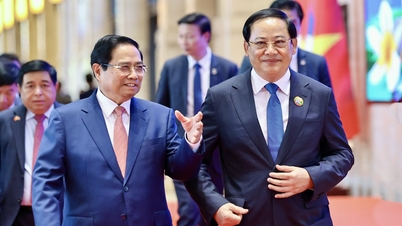


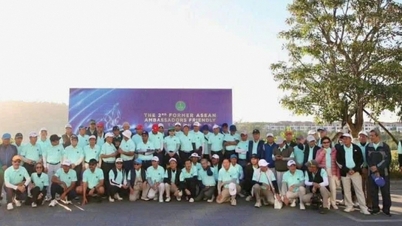




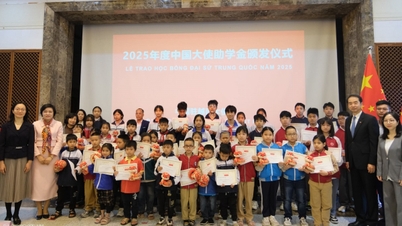
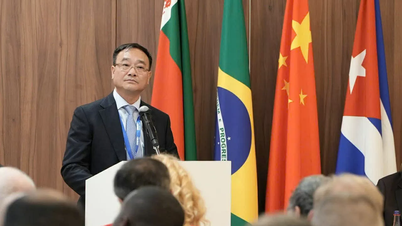


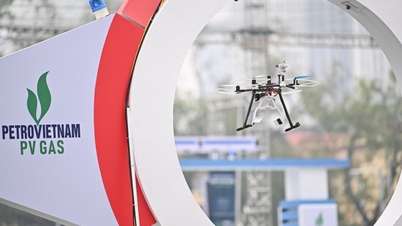
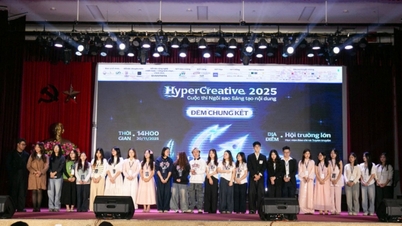























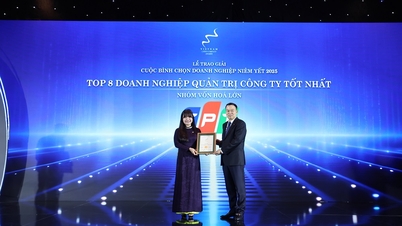



![[VIMC 40 days of lightning speed] Da Nang Port: Unity - Lightning speed - Breakthrough to the finish line](https://vphoto.vietnam.vn/thumb/402x226/vietnam/resource/IMAGE/2025/12/04/1764833540882_cdn_4-12-25.jpeg)

















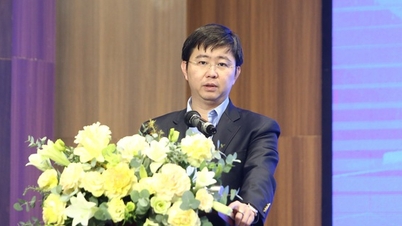

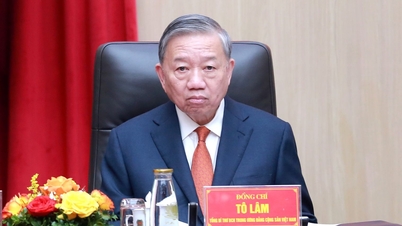






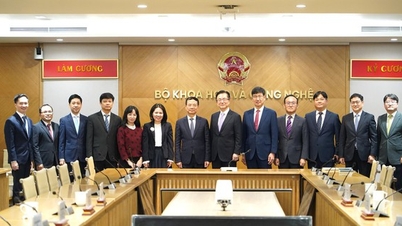

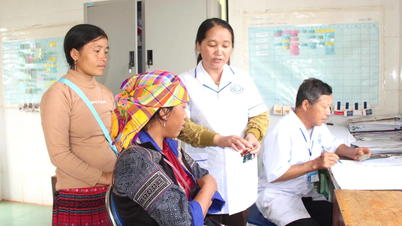



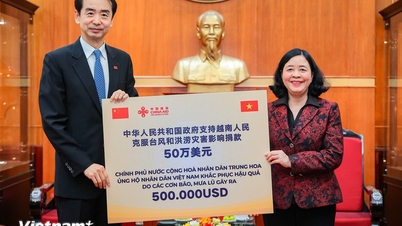

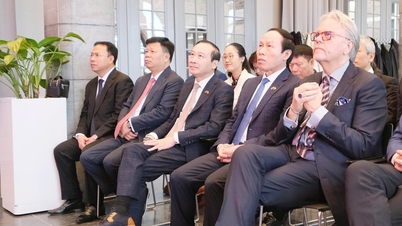










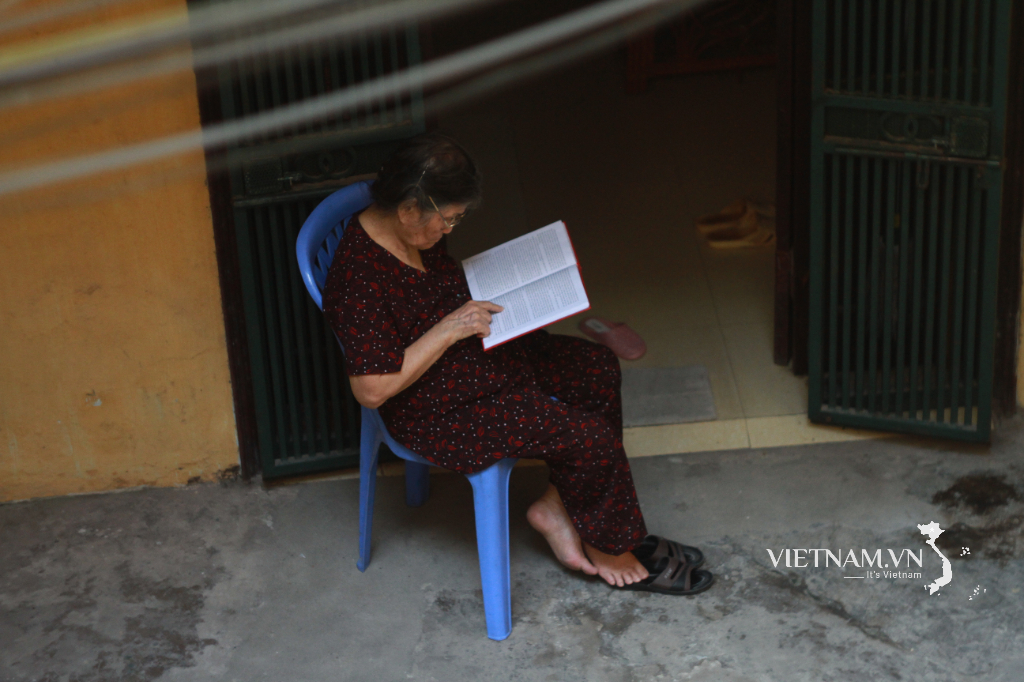

Comment (0)